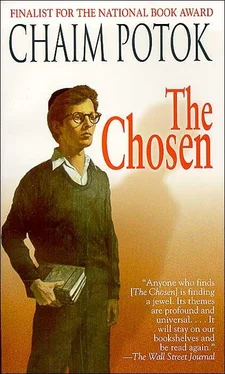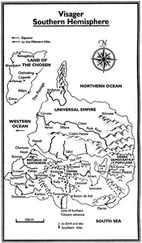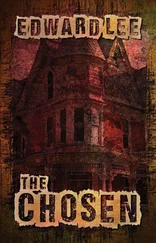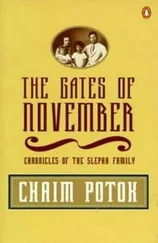The student body of the college was tense with suppressed violence. An angry fist-fight broke out in a classroom one afternoon, and it was only because the Dean threatened immediate expulsion to any future participants in such quarrels that more fist-fights were avoided. But the tension was felt everywhere; it spilled over into our studies and arguments over Milton, Talleyrand or deductive procedures in logic were often clear substitutes for the outlawed fist-fights over Zionism.
I took the finals in the middle of June and came away from them sick with despair. I had botched my midterms badly, and I didn't do too much better on my finals. My father didn't say a word when he saw my report card at the end of June. Both of us were by that time looking forward very eagerly to the quiet month of August when we would be together in the cottage near Peekskill. It had been a terrible time, these past four months, and we wanted to get away from the city.
But the cottage proved to be not far enough away. We took to it the horrifying news that the Irgun had hanged two innocent British sergeants in retaliation for the three Irgunists who were hanged on the twenty-ninth of July. My father was outraged by the Irgun act, but said nothing more about it after his first burst of anger. Two weeks after we left for the cottage we were back in the city. Urgent Zionist meetings had been called to plan for the coming United Nations session that was to discuss the Palestine problem. My father was on the Executive Committee of his Zionist group and had to attend the meetings.
For the rest of August, I saw my father only on Shabbat. He was gone in the mornings when I woke and he returned at night when I was asleep. He was filled with fiery excitement, but it was clear that he was wearing himself out. I couldn't talk to him at all about his health. He refused to listen. Our Shabbat afternoon Talmud sessions had stopped; my father spent all of Shabbat resting so as to be prepared for each coming week of furious activity. I haunted the apartment, wandered the streets, barked at Manya, and thought of Danny. I remembered him telling me how much he admired and trusted his father, and I couldn't understand it. How could he admire and trust someone who wouldn't talk to him, even if that someone was his father? I hated his father. Once I even went up to the third floor of the public library, hoping I might find Danny there. Instead, I found an old man sitting in the chair Danny had once occupied, staring nearsightedly at the pages of a scholarly journal. I went away from there and walked the streets blindly until it was time to go home to a lonely supper.
In the second week of September, I returned to school for the pre-registration student assembly and found myself sitting in the auditorium a few seats away from Danny. He looked thin and pale, and constantly blinked his eyes. During the registrar's brief words of instruction concerning registration procedure, I saw Danny turn his head, stare at me for a moment, then turn slowly away. His face had remained expressionless; he hadn't even nodded a greeting. I sat very still, listening to the registrar, and felt myself get angry. To hell with you, Danny Saunders, I thought. You could at least show you know I'm alive. To hell with you and your fanatic father. I became so completely absorbed in my anger that I stopped listening to the instructions. I had to ask one of my classmates to repeat them to me after the assembly. To hell with you, Danny Saunders, I kept saying to myself all that day. I can live without your beard and earlocks with no trouble at all. You're not the center of the world, friend. To hell with you and your damn silence.
By the time the fall semester officially began two days later, I had promised myself to forget Danny as quickly as possible. I wasn't going to let him ruin another semester's work. One more report card like the one I had shown my father at the end of Tune and I wouldn't even be graduated cum laude. To hell with you, Danny Saunders, I kept saying to myself. You could at least have nodded.
But it proved to be a good deal more difficult to forget him than I had anticipated, mostly because I had been moved up into Rav Gershenson's Talmud class where Danny's presence was always felt.
Rav Gershenson was a tall, heavy-shouldered man in his late sixties, with a long, pointed gray beard and thin, tapered fingers that seemed always to be dancing in the air. He used his hands constantly as he talked, and when he did not talk his fingers drummed on his desk or on the open Talmud in front of him. He was a gentle, kindly person, with brown eyes, an oval face, and a soft voice, which at times was almost inaudible. He was an exciting teacher, though, and he taught Talmud the way my father did, in depth, concentrating for days on a few lines and moving on only when he was satisfied that we understood everything thoroughly. He laid heavy emphasis on the early and late medieval Talmudic commentators, and we were always expected to come to class knowing the Talmud text and these commentators in advance. Then he would call on one of us to read and explain the text – and the questions would begin. 'What does the Ramban say about Rabbi Akiva's question?' he might ask of a particular passage, speaking in Yiddish. The rabbis spoke only Yiddish in the Talmud classes, but the students could speak Yiddish or English. I spoke English. 'Everyone agrees with the Ramban's explanation?' Rav Gershenson might go on to ask. 'The Me'iri does not. Very good. What does the Me'iri say? And the Rashba? How does the Rashba explain Abaye's answers?' And on and on. There was almost always a point at which the student who was reading the text would become bogged down by the cumulative intricacies of the questions and would stare down at his Talmud, drowning in the shame produced by his inability to answer. There would be a long, dreaded silence, during which Rav Gershenson's fingers would begin to drum upon his desk or his Talmud. 'Nu?' he would ask quietly. 'You do not know? How is it you do not know? Did you review beforehand? Yes? And you still do not know?' There would be another long silence, and then Rav Gershenson would look around the room and say quietly, 'Who does know?' and, of course, Danny's hand would immediately go up, and he would offer the answer. Rav Gershenson would listen, nod, and his fingers would cease their drumming and take to the air as they accompanied his detailed review of Danny's answer. There were times, however, when Rav Gershenson did not nod at Danny's answer but questioned him on it instead, and there would then ensue a lengthy dialogue between the two of them, with the class sitting by and listening in silence. Most often these dialogues took only a few minutes, but by· the end of September there had already been two occasions when they had lasted more than three quarters of an hour. I was constantly being reminded by these dialogues of the way Danny argued Talmud with his father. It made it not only difficult to forget him but quite impossible. And now it was also I and not only Reb Saunders who was able to listen to Danny's voice only through a Talmudic disputation.
The hours of the Talmud classes in the school were arranged in such a way that we were able to spend from nine in the morning to noon preparing the material to be studied with Rav Gershenson. We would then eat lunch. And from one to three we would have the actual Talmud session itself, the shiur, with Rav Gershenson. No one in the class knew who would be called on to read and explain, so all of us worked feverisly to prepare. But it never really helped, because no matter how hard we worked there would always be that dreaded moment of silence when the questions could no longer be answered and Rav Gershenson's fingers would begin their drumming.
There were fourteen students in the class, and each one of us, with the exception of Danny, sooner or later tasted that silence personally. I was called on in the first week of October and tasted the silence briefly before I managed to struggle through with an answer to an almost impossible question. The answer was accepted and amplified by Ray Gershenson, thereby forestalling Danny's poised hand. I saw him look at me briefly afterward, while Rav Gershenson dealt with my answer. Then he looked away, and a warm smile played on his lips. My anger at him melted away at the sight of that smile, and the agony of not being able to communicate with him returned. But it was a subdued agony now, a sore I was somehow able to control and keep within limits. It was no longer affecting my schoolwork.
Читать дальше












